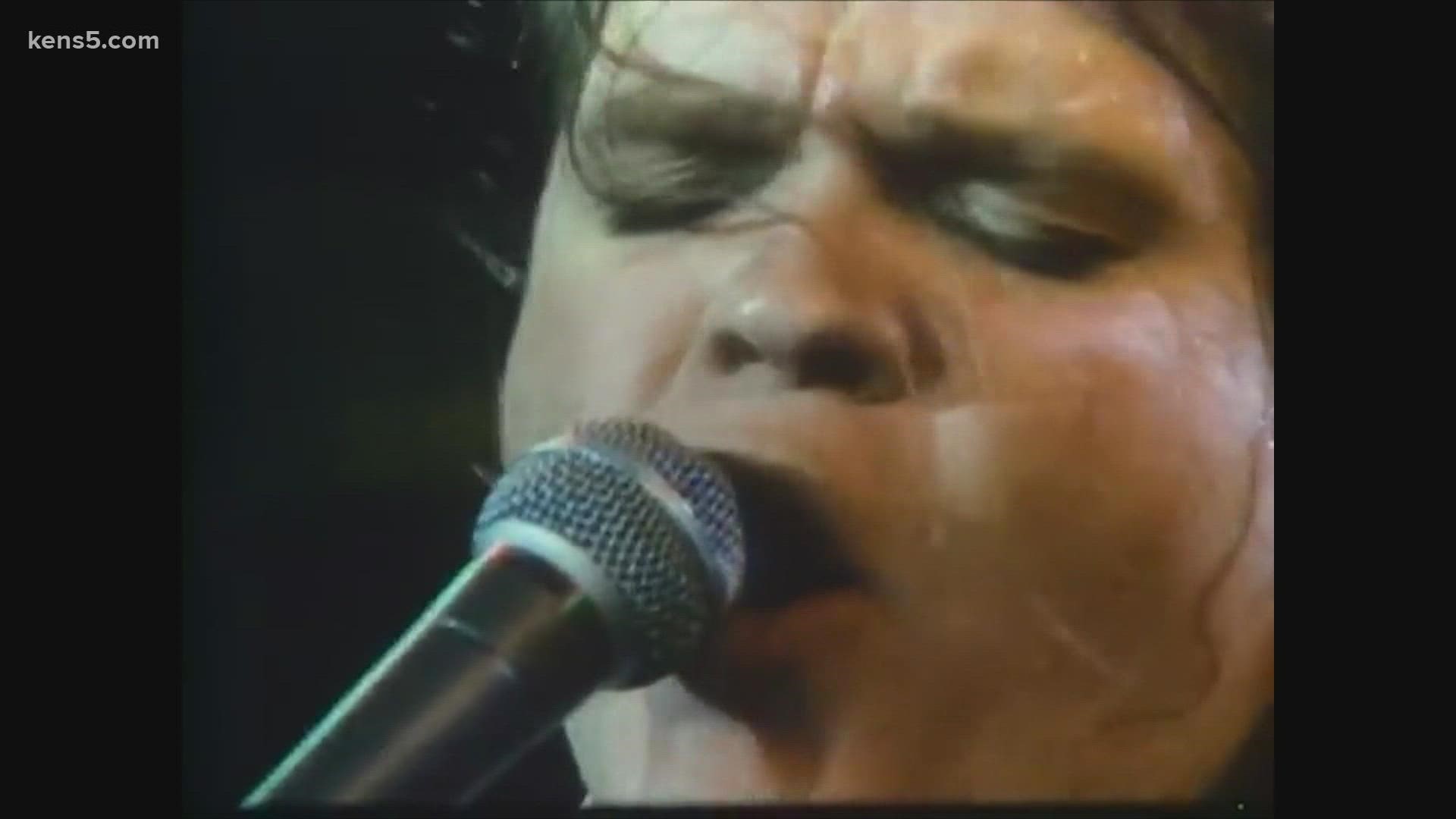SAN ANTONIO — The word “coronavirus” is never uttered, nor any masks worn in writer-director April Maxey’s new short film “Work,” about a former lap dancer who briefly returns to the job while skirting heartbreak.
But the native San Antonian says her movie was nonetheless shaped in a major way by the pandemic… or, at least, the isolated mood it wrapped her and millions of others up in over the last two years. What once had a happy ending was instead deepened, she says, with “more turmoil and conflict” to go along with an open-ended finale for its protagonist, Gabriela.
“Oh my god, I changed the whole story,” said Maxey, 31. “I went through a breakup and I was like, ‘I can't make a love story right now. And really, the film ended up being about her finding her way back to herself and being OK in solitude and finding peace in that. I feel like that's also very much a theme with COVID.”
The manner of “Work’s” production was just as of apiece with COVID and its effects on filmmaking projects of all sizes since the start of 2020. Maxey could afford to change the trajectory of her story so drastically only because the shoot – supported by her participation in the AFI Directing Workshop for Women – was pandemic-delayed by 10 months.
When the cameras finally started rolling in May of 2021, Maxey had a better handle on what “Work” was meant to be. Surrounded by fellow queer creatives, she also had a better perspective on her own history as a dancer—a history the creation of “Work” helped her better understand.

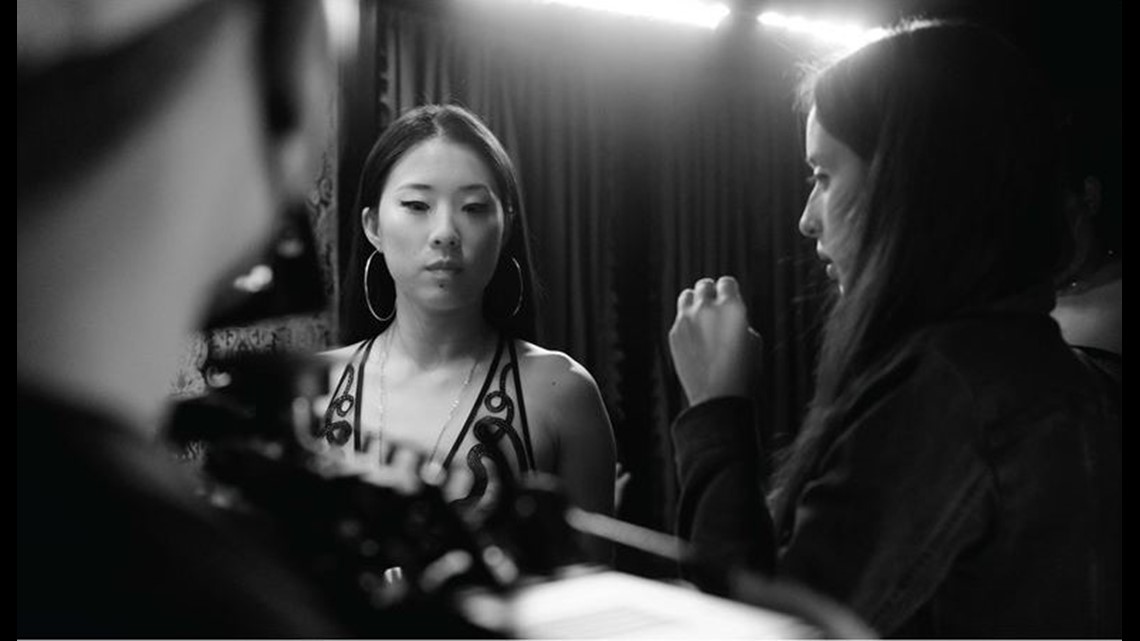
“This time in my life had always been, you know, in the back of my head even though it was many years ago. I’m like, ‘There’s a story there, I think.’ And it’s one that I hadn’t seen before from the perspective I’m coming from,” she said. “I just thought there was so many different layers of experience that were happening for me at that time.”
Several months later, post-production on Maxey’s fourth short film is done. And it’s now screening at the all-virtual 2022 Sundance Film Festival, which continues until Sunday.
‘Beyond the default’
For as long as the movies have depicted sex work, it’s largely been depicted as a one-note lifestyle—a tool to titillate audiences, rarely doing little else.
There are exceptions, like Alan J. Pakula’s “Klute,” “Working Girls” and the recent hit “Hustlers.” But sex workers are otherwise not a community Hollywood has bothered to give much depth to, the stereotype one that's only occasionally been ruptured.
That’s the expectation Maxey, based in Los Angeles, says she hopes to thwart with “Work.”
“I think there’s this mainstream idea that sex work is bad, that it’s shameful. I’m really just trying to present it like, actually there’s a lot of people that do it,” she said. “I didn't want it to be portrayed like (I was) glamorizing it, or anything. I just wanted it to be very real. Like, hopefully, if anyone who's ever been a dancer watches it, they're like, ‘Oh, yeah. Yeah, I think that scene of her being rejected is very real.’ And it's something you don't always see.”
In fact, just about everything about the body-positive “Work” goes against the grain of the industry, even as Hollywood embarks on a more inclusive path.
The cast, anchored by Marisela Zumbado, is almost totally nonwhite. The same goes for the crew, which also has several queer contributors. And Maxey isn’t the only one with a Texas background; producer Skylar Andrews is from Dallas, while associate producer Nava Mau spent time in San Antonio. The project's spirit can even be heard on the soundtrack, for which Maxey sought out independent musicians.

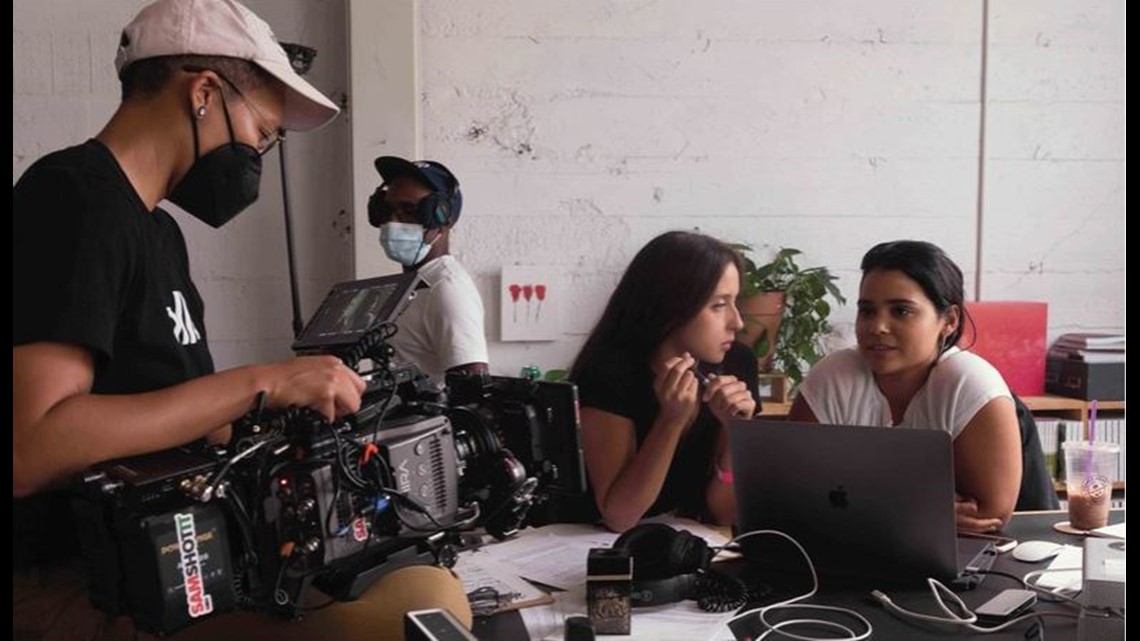
That range of perspectives was key, the director says, to producing a story from a perspective not historically foregrounded in the movies.
“Me and my producer really wanted to build a team of people that we could trust, people that are interesting in handling the story with delicacy and nuance. You know, trying to tell it beyond the default way of doing things.”
The signs are numerous that “Work” isn’t a default piece of filmmaking, starting with its matter-of-fact approach to sex workers as an occupation, one with successes, failures and confidence that comes from familiarity with the job. Meanwhile, the return of Zumbado’s Gabriela to the club where she used to work marks her regaining agency that’s been shook loose after an off-screen breakup.
“Work,” which treads an ambitious visual spectrum over just 13 minutes, provides glimpses of Gabriela in happier times via grainy footage tinged with bittersweetness. According to Maxey, those scenes were shot on just a few rolls of 20-year-old film a friend had stored away in her fridge.
There was no way of knowing if they might work. But there’d be no way of knowing unless they tried.
“We did one roll, that was a camera test, and then we had the two roles. I’m like, ‘You know what? If it works, it works. I think it will work,’” Maxey said, adding that a moment filmed for the camera test ended up in the final film. “It’s like, it just happened, and it looks so poetic. Everything had to just magically be right in that moment for it to work, and it did.”

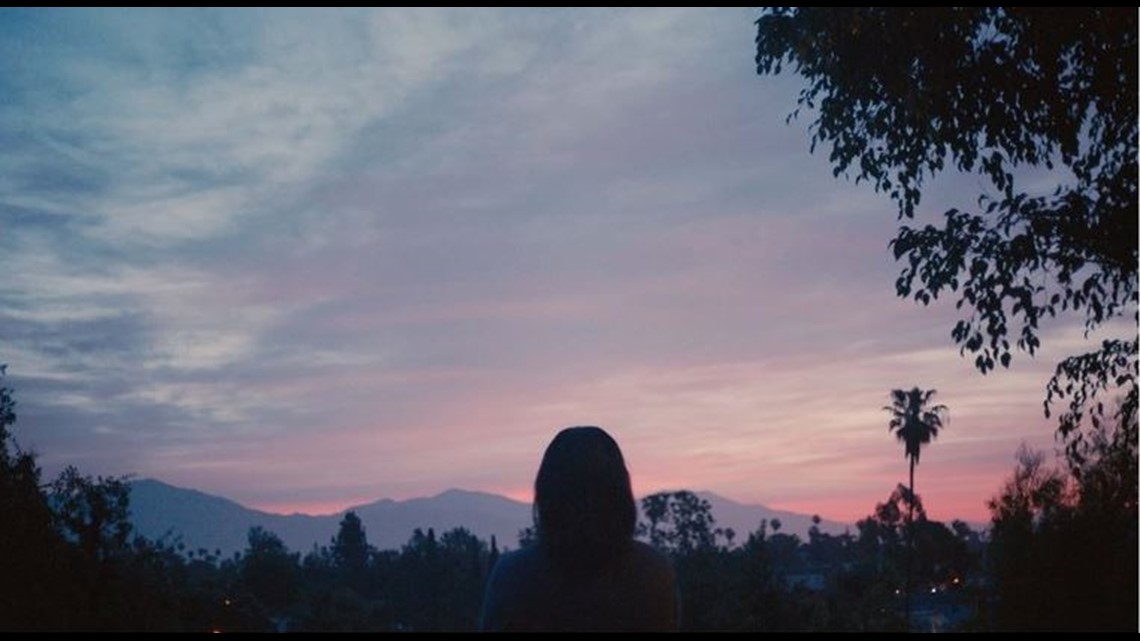
Elsewhere, the transparent blues of LA at dawn recall Barry Jenkins’s “Moonlight,” while the fiery reds of club-set scenes evoke Wong Kar-Wai’s sensual style as bodies move and glances of affection are exchanged.
Maxey said the use of color was very much top of mind for her and Melinda James, her director of photography, whose way of visualizing intimacy stood out to the director.
“Me and her worked a lot on, you know, what is the light and color, what is that emotionally telling us about these spaces?” she said. “And then, with the dance world…it’s like this escapism world, compared to this mundane day job which we film like static.”
The film ends seemingly in the same place it begins, with the sun about to rise over Californian hills. But Maxey leaves the viewer with the widest shot in her film, at once showing that Gabriela can now see the path forward even as the melancholy of her memories remain.
"Her world is more open now," Maxey said. "There's this beauty and this dawn that we find at the end."
A bigger story to tell
“Work” is the biggest movie Maxey has directed, in addition to being the most personal. If a few things go her way, it could grow even bigger.
“I’ve been working on a feature script. I was worried about it as a short, because there’s so many things I’m trying to cram into 13 minutes,” she said. “But there’s definitely enough for a feature because every little scene hinted that there’s a whole world where that comes from.”
Whatever feature-length movie Maxey makes would be her first as she continues a career that took its first steps during Alamo Drafthouse trips in Texas, acting classes in San Antonio and her participation in an MFA thesis film.

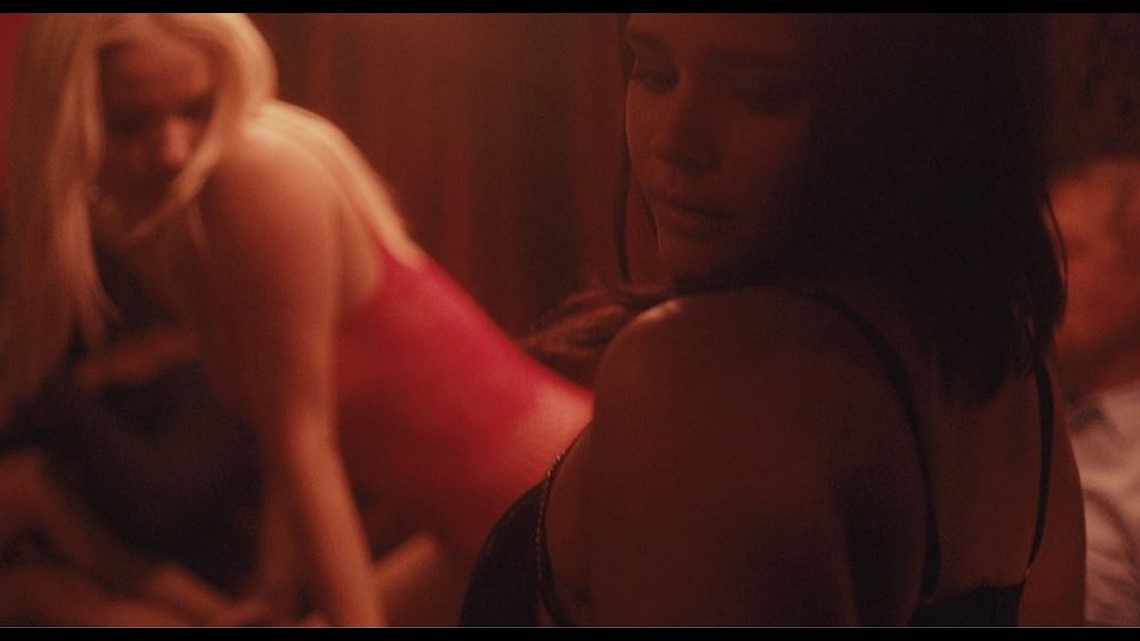
This week, though, Maxey – whose shorts have appeared at dozens of festivals across the world, winning awards at some of them – is relishing the Sundance experience, even with omicron preventing her from getting to Park City, Utah in person.
“It’s a huge deal. I think they said there was 10,000 (short-film) submissions and they pick 59, so I’m so grateful. It’s the most prestigious festival my work has ever played at,” she said. “Even though I love playing on the queer circuit, I think this will give me access to the industry at a different level.”
The festival, historically a launching pad for major new filmmaking voices, is also one that champions the kind of do-whatever-you-need-to-do-to-make-it-work storytelling that “Work” embodies, from its delayed shoot to its modified story.
Whatever that means for Maxey’s future opportunities, it makes her short a natural fit for Sundance—and an example of how much more movies can still do, show and disrupt.
“Historically there’s just been a very limited number of people who are invited to tell their stories, and that’s why I think independent filmmaking is so important,” she said. “I think that the art is better when the communities who the stories are about are in the teams of people making the stories as well.”
"Work" is available to watch online through Jan. 30. Buy tickets here.

